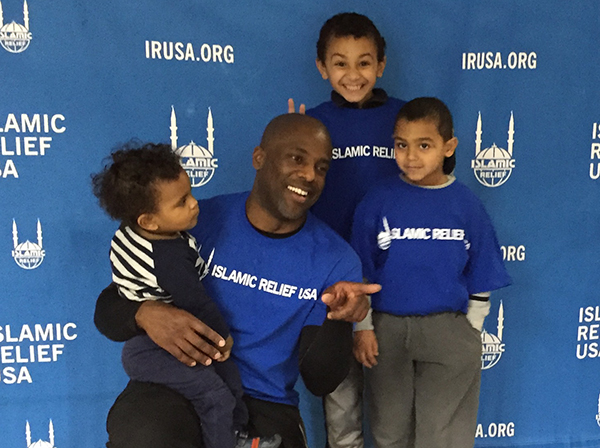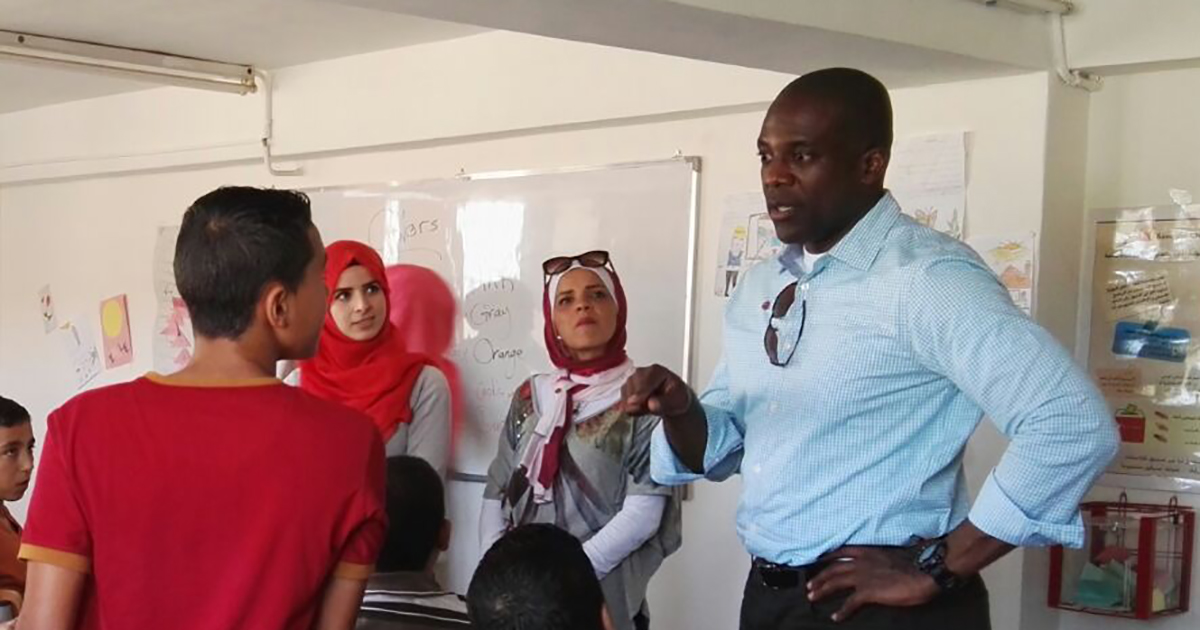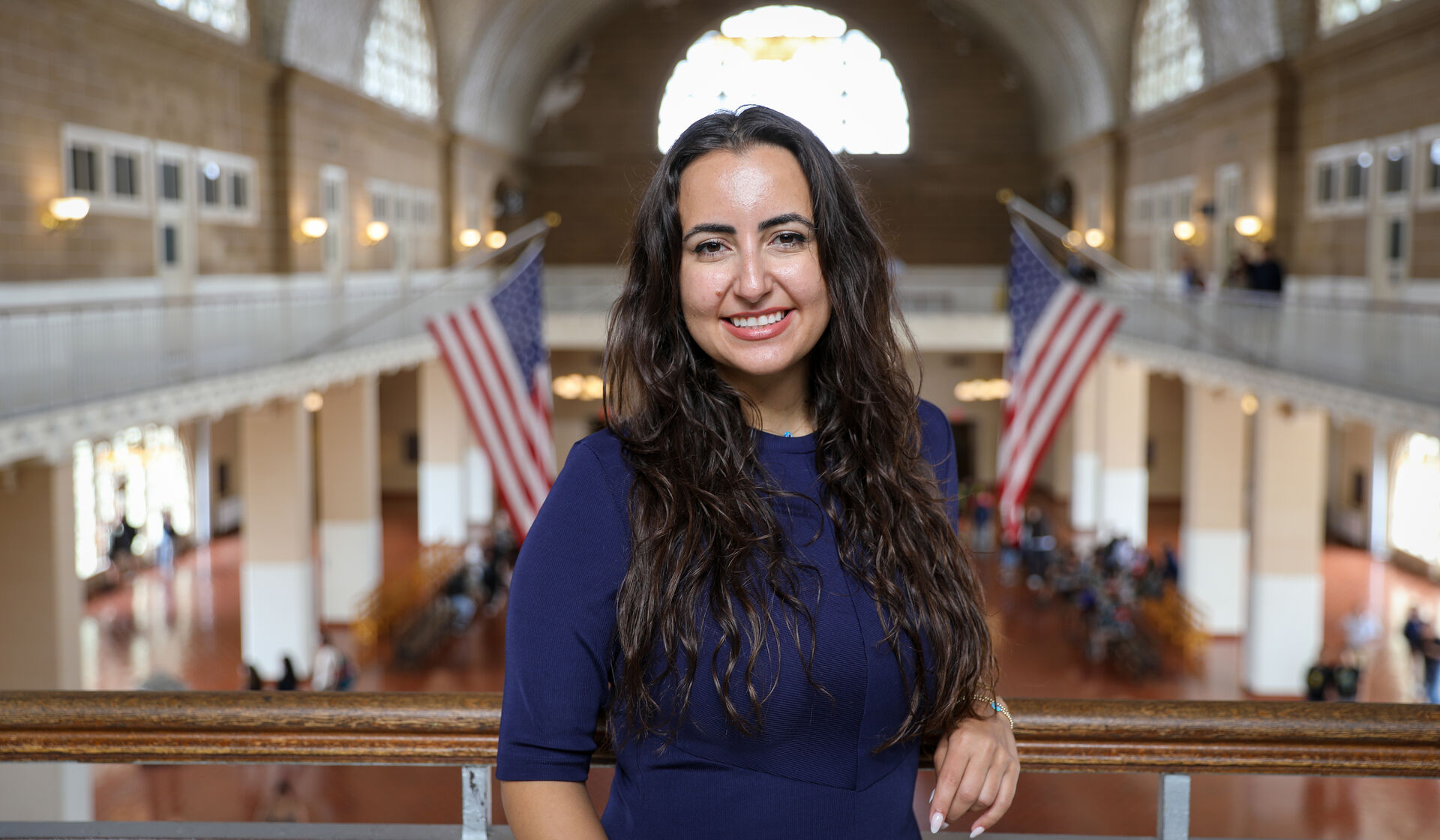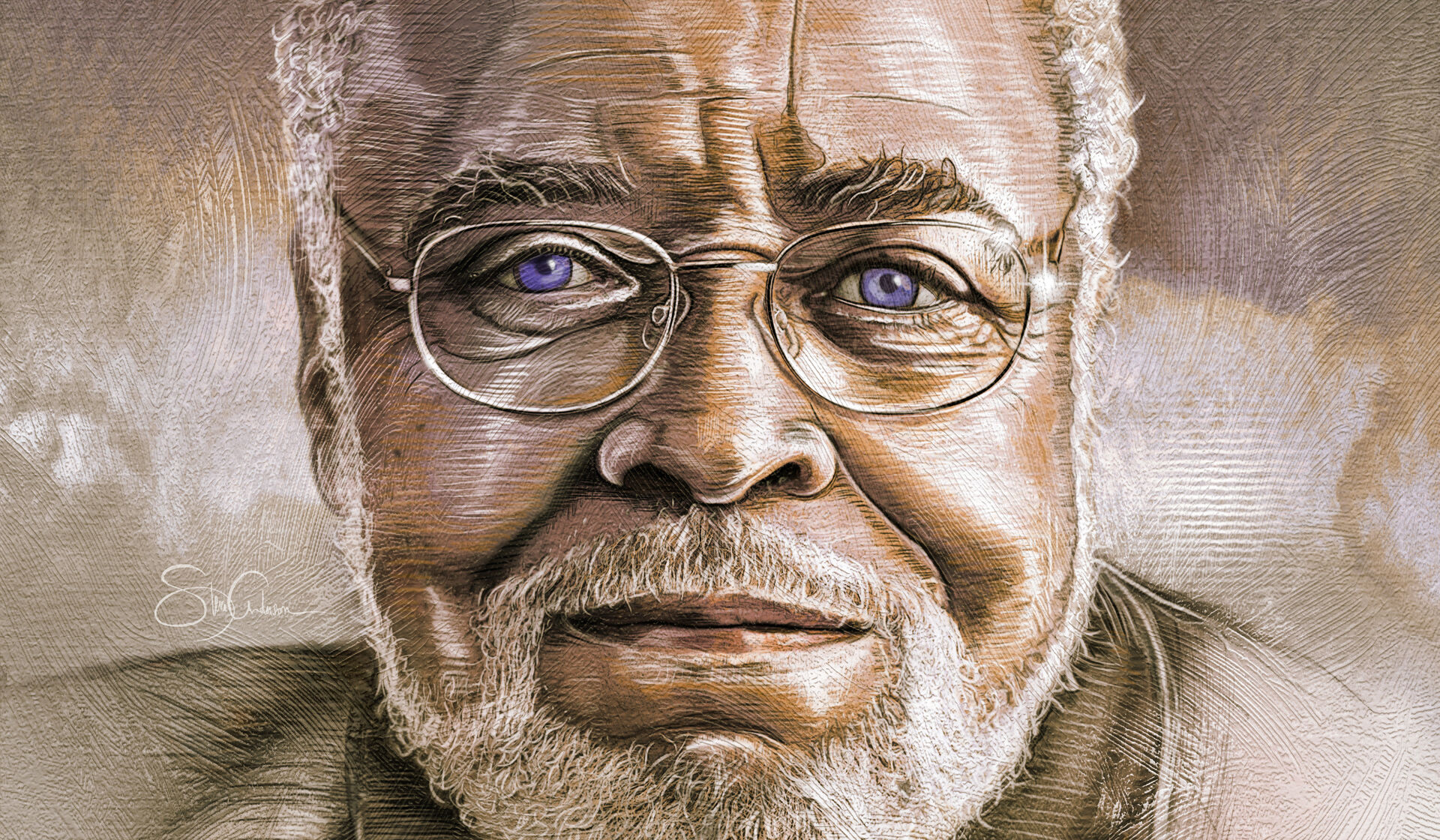For Hardy Vieux, JD’97, MPP’97, July 2 provided an early celebration for the upcoming holiday: A U.S. federal court blocked the detention of migrants who have shown credible evidence that they were fleeing persecution in their home countries. Vieux, the legal director of Human Rights First (HRF), was among the team of lawyers who filed the lawsuit that resulted in the ruling on behalf of a group of detained asylum seekers.
In his role at HRF, based in Washington, D.C., Vieux regularly turns to the nation’s top lawyers for help with the organization’s legal initiatives. In 2017 alone, HRF tallied more than $60 million worth of donated pro bono legal work. Michigan Alumnus gleaned the following from a recent conversation with Vieux.
The government is entitled to hold refugees in detention. However, the preliminary injunction orders officials to follow a 2009 government directive that if the case for asylum is made in an initial interview, refugees should be considered for release if they are not a threat to others or a flight risk. “This has been a dejecting few weeks on many levels, but also heartening,” said Vieux. “It has given so many people cause to stand up and fight for what is right.”
As the child of Haitian immigrants, Vieux lived from the age of 6 months to 6 years old in Port-au-Prince under the care of his grandmother. His parents, who had very little formal education, hoped by temporarily sending their American-born son to Haiti they would have a better chance to improve their circumstances. His family’s experience gave Vieux “some sense of what it feels like to be marginalized and to be ‘the other.’”
In middle school, Vieux knew he wanted to be a lawyer, but only after finding out he could not be an aviator due to his poor eyesight. “I had a big mouth, and it seemed like lawyers got paid for having a big mouth and fighting for people who often are not able to fight for themselves.”
Vieux almost failed to graduate from U-M’s law school. As a dual-degree student studying both law and public policy, he said his academic record was “precarious.” He also felt distracted, having helped to start a civil disobedience movement addressing race relations within the Law School.
Vieux served in the U.S. Navy as a criminal defense lawyer. Wearing the uniform of the U.S. military was his way of paying back the country for helping his parents, who prospered here. He served in the Judge Advocate General’s Corps and once represented a whistleblower who was an Army soldier at the Abu Ghraib prison in Iraq at the time the U.S. forces were accused of abusing detainees.
In 2010, while working in private practice, the District of Columbia Bar named Vieux Pro Bono Lawyer of the Year. Despite that success, he was laid off from his for-profit law firm two years later for not bringing in enough new business. He shared this difficult turn of events in a U-M commencement speech this past April for LSA graduates of the Program in International and Comparative Studies. “The firm did me a service by helping me see the light and the door,” he told them.
 Vieux spent six months in 2014 in the Middle East as a policy fellow for Duke University, his undergraduate alma mater. While in Jordan, he worked for Save the Children, researching what would help make children in the community—particularly those in the Syrian refugee camps—safer. He soon discovered many children were working, rather than attending school, to help their parents.
Vieux spent six months in 2014 in the Middle East as a policy fellow for Duke University, his undergraduate alma mater. While in Jordan, he worked for Save the Children, researching what would help make children in the community—particularly those in the Syrian refugee camps—safer. He soon discovered many children were working, rather than attending school, to help their parents.
Last winter, Vieux taught the U-M class “The Role of Non-Governmental Organizations in Policy Formation.” “My students asked me really difficult questions that I needed to ask myself,” he said. “Frankly, it was the students who schooled me.”
To this day, the ethical voice that remains in Vieux’s head is that of Richard Matsch, ’51, JD’53, the judge for whom he clerked in 1997 in Denver when Matsch presided over the Oklahoma City bombing trials. “I channel him, listen to that inner voice, and he often gives me the right answer.”
Jennifer Conlin, ’83, is deputy editor of Michigan Alumnus.





